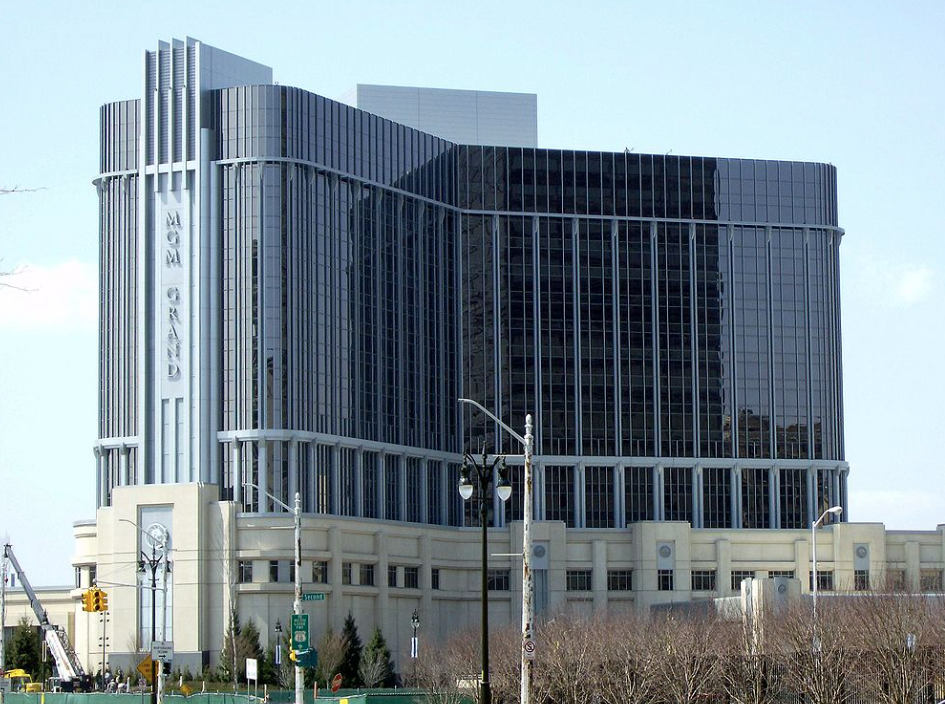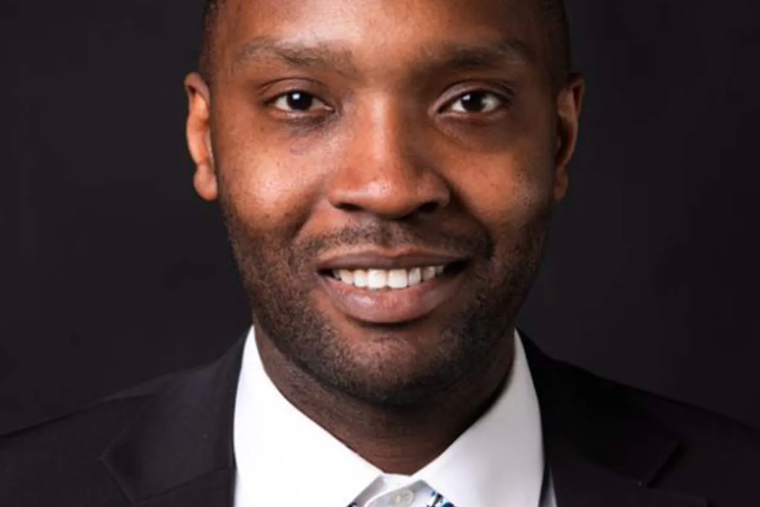MGM Grand Casino: Systems, Recycling, and Goals Are Key to Sustainability Efforts

MGM Grand Detroit is one of three casino resort hotels in Detroit and one of four in the Detroit–Windsor area. It is owned by Vici Properties and operated by MGM Resorts International. The hotel opened in 2007. SBN Detroit interviewed Jay Love, vice president of facilities, and Carlton Dennard, director of environmental science and housekeeping, about sustainability planning and efforts in facilities and maintenance. Love said he is responsible for “anything that moves water or air within the facility.” He oversees general maintenance and works to improve processes and services for guests, as well as contributing to the maintenance strategy to extend the life of equipment and assets within the casino and hotel. Denard has been with MGM Grand Detroit since it opened and oversees a team of 250. He is responsible for the game floor and front and back of the house and the cleanliness of 400 guest rooms. Q: What type of sustainability planning does MGM Grand Detroit do? Dennard: In my role – among other things – we are heavily focused on recycling and it’s been a big commitment since day one in 2007. The goals that corporate institutes continually evolve, and we follow their lead. Love: Our corporate leadership team in Las Vegas rolls out a plan for every property each year. We pursue sustainability efforts in line with that. We’re committed to sustainability and reducing our environmental impact, while also contributing to economic growth in the region. Q: What are some of your current initiatives and goals in sustainability? Dennard: We are working on surpassing our annual recycling numbers. Last year we recycled 280k pounds and we are looking to continually increase these recycling efforts. When it comes to energy, our goal is to convert to 100% renewable energy by 2030. One example of work there is replacing all lights with LED bulbs. When it comes to housekeeping, we use environmentally friendly chemicals and cleaners. Ecolab supplies the resorts with chemicals daily. We also have a Green Advantage Program. If guests are staying for more than two nights, they can opt to reuse towels to decrease the waste involved in replacing towels. Love: The facilities department is working to reduce electrical consumption by 2.5% this year. This is done by adjusting set points to ensure units are not running as long or as hard, installing occupancy sensors, and making sure our mechanical equipment runs efficiently. So, we are really focusing on chillers, chilled water setpoints, boilers, boiler setpoints, heat exchangers, and that type of equipment. We’ve done a lot of preventive maintenance to ensure that the equipment operates as efficiently as possible. Longer-term goals are to reduce carbon emissions per square foot by 45%, and water by 33%. Toward these goals – and others – we have best practices laid out by our corporate office. Q: What are your biggest challenges? Dennard: It’s critical to remain proactive instead of reactive and with a facility of this size, that can be challenging. Love: Staying in front of reactive repairs to minimize the impact on the operation is key. If a boiler goes down, we need to have a redundancy in place, so we are ready to roll right away. And from a sustainability standpoint again, maintenance and ensuring efficiencies are key. Q: How does sustainability come into play when choosing vendors and partners? Dennard: There is a bid process used when selecting vendors and sustainability plays a large factor in our decisions. Love: It weighs heavily in all of our decisions. We go through a strict and thorough process with the purchasing department to approve all vendors. Also, to ensure all equipment purchased is up to spec and within sustainability guidelines. We will always consider bringing on new and local vendors to continue to diversify and support the economy. Q: How do you think your sustainability work impacts the businesses and communities around you? Dennard: Going back to recycling as one example on my end – MGM is responsible for 17% of recycling in the city of Detroit. I’m proud of that number and looking to grow it. We are working toward collaborating with other casinos in the city to that end. That has a significant impact on the community around us and the city of Detroit. Love: I think there is a huge impact. Any time we roll out a new initiative we try to use local businesses and minority-owned businesses to help the local economy and also to set an example. I think there is a domino effect. I think our commitment to sustainability demonstrates that economic growth and environmental responsibility can coexist, creating a better future for everyone. More about MGM Detroit’s environmental efforts can be found here Be sure to subscribe to our newsletter for regular updates on sustainable business practices in and around Detroit.
An Interview with Detroit’s New Director of Sustainability

Jack Akinlosotu, Detroit’s new director of sustainability, sees sustainability opportunities in Detroit’s large geography, mobility industry focus, and other characteristics as he begins to immerse himself in the community. Akinlosuto came to Detroit from Washington, D.C., where held posts at the Department of Energy and Environment (DOEE), the Clean Energy Institute, and in private industry. He also has held positions in New York City, San Francisco, and Seattle. Immediately before coming to Detroit, he served as the senior product manager at Oracle Energy & Water, where he led partnership outreach and software development of the company’s product that helps utilities find, reach, and enroll limited-income customers in financial assistance and energy efficiency programs to lower their utility bills. Previously, he worked as the energy program specialist at DOEE to coordinate multiple renewable energy projects, including community accessibility to solar power, electric vehicles, and green financing. SBN Detroit spoke with Akinlosotu about his vision, how he’ll align strategies with the city’s Sustainability Action Agenda, and his top priorities in his new position. Q: What role does environmental sustainability have for a city the size, scale, economy, and density such as Detroit and how will you approach it? A: When I first came and visited Detroit I was surprised at the geographic scale. There is a lot of space and land. For a city this size to have this much unused land is unusual, and that provides opportunities here in terms of sustainability. There is ample space to scale, deploy and set up solar power and things like that. Also, Detroit is the Motor City and is in a good position to be the frontrunner in the EV revolution. If we deploy EVs in smart ways we will continue Detroit’s history of being the leader in mobility and that’s a great opportunity for economic sustainability as well. Q: What challenges do you foresee ahead of you, for your office, as you move ahead with a sustainable mission for the city? A: The biggest challenge is making sure we are all hitting our climate goals. When it comes to scaling climate change, that’s a challenge every city faces. There is a lot of work to do and coordination and collaboration need to happen. We need to make sure all parties are in alignment for success, and some challenges come with this. We also need to ensure that the people who have historically been left behind are included as part of the process. Q: Conversely, what opportunities do you foresee? You are quoted as saying “There is a great deal of opportunity in Detroit to be more creative in developing lasting sustainability. The sustainability programs we need will be a transformative leap for Detroit.” What does this mean for the businesses and people of Detroit? A: With all the work at hand there are significant opportunities to bring along a new workforce. For example, we need to work on making these older buildings and also residences energy efficient and we need a workforce to do that. We need to deploy and scale the use of solar energy and we need people to do that. There are a lot of opportunities to align climate goals with new jobs. We also need to focus on putting programs in place – such as deploying renewable energy – that help people with limited income. I see this as an opportunity to build a more sustainable economy and more sustainable communities. Q: How do you foresee working with businesses in the city to help them to become more sustainable? Or equitable? A: It’s important that we all work together to help businesses in our region hit their climate goals. In addition to sustainability, there are a lot of financial upsides to making buildings more efficient so there are several “wins” here. Q: What does the Sustainability Action Agenda look like now as you work to create a more sustainable Detroit where all Detroiters thrive and prosper in an equitable, green city and have access to affordable, quality homes? A: There is work being done on many fronts to hit our goals and inform an updated Detroit climate strategy, including the following four key priorities: -Electrification of the city’s vehicle fleet -Transitioning municipal buildings to energy efficiency and -Deploying solar and other measures of clean energy to help with decarbonization -Focus on vulnerable communities and the city’s overall resilience We are working to help vulnerable residents across Detroit by setting up resilience hubs for when there are outages and protecting homes with basement backup retrofits and things like this. The Sustainability Action Agenda is informing the Detroit climate strategy and this work. And the goal is to work as fast as possible. Q: What changes /impact do you expect to have made a year from now? A: On a personal level, I’m new to the city and have been working to intentionally familiarize myself with the community by reaching out to individuals and groups who have been leading the on-the-ground work in their neighborhoods. My goal is to create good relationships so that I understand and hear their needs and what the residents and businesses want out of our plans. I look forward to executing these plans and being further ahead a year from now. In terms of my responsibilities as the director, I plan to deploy as much renewable energy as possible within communities in the city. We will see that progress a year from now. We will see more EV charging stations across the city, and a lot of that work is being done in this area now. The city recently converted its entire municipal parking department fleet of 48 vehicles to all-electric and has deployed four electric buses as part of the bus fleet conversion. We need to keep this momentum going, and we will. Q: What does a successful collaboration between city departments and agencies look like for sustainable growth in the city? A: Keeping all lines of communication open is going to be


